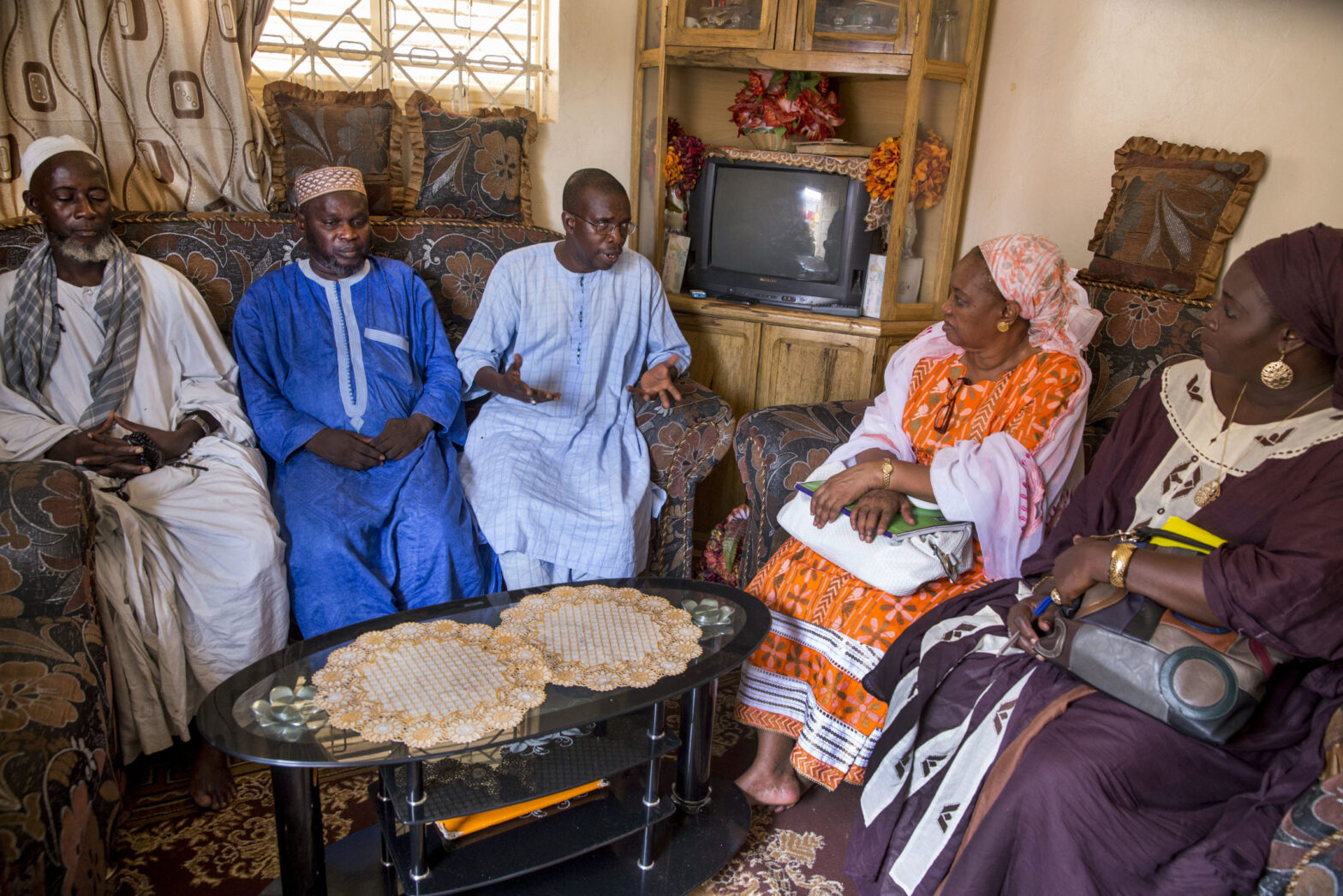Implement interventions that address social norms to support an individual’s or couple’s decision-making power to meet their reproductive intentions.
An individual’s or couple’s decisions and behaviors around contraception and reproductive health are influenced not only by their individual knowledge, beliefs, and attitudes but also by informal and mostly unwritten rules of the communities where they live known as “social norms.”
Social norms define acceptable and appropriate actions within a given community or group. They are sustained and enforced by people whose opinions or behaviors matter to an individual (e.g., sexual partners, friends, peers, family members, religious or community leaders). These individuals are known as reference groups. Individuals who do not act in accordance with social norms may face sanctions, such as ostracism or lowering of status. Social norms that affect an individual’s or couple’s decisions and behaviors around contraception and reproductive health include norms related to who has the power to make decisions; when and how many children to have; who is allowed and when it is appropriate to engage in sexual activity; and who is allowed and when it is appropriate to seek health services.
Some social norms change quickly, such as expectations and rules around the increasing use of mobile phones. Others are more persistent, such as the household roles that men and women are expected to play. Experts note that social norms can be particularly powerful in influencing behaviors among marginalized populations. For example, young people may be denied participation in critical life decisions in communities where adults are given decision-making power over adolescents. Individuals with more resources, such as higher education or economic status, are more likely to engage in desired behaviors that conflict with current social norms than those with fewer resources.
Gender norms, a subset of social norms, are particularly important in sexual and reproductive health as they shape societal expectations of men and women and often consolidate power and resources among men and male-dominated institutions. Gender roles and inequalities subsequently influence health outcomes.
Interventions that address social norms typically do one or more of the following: 1) identify the social norms and reference groups relevant to the behaviors of interest; 2) seek change at the community rather than individual level; 3) confront power imbalances such as those related to gender and age; and/or 4) create or reinforce positive norms to support healthy behaviors.
Implementing interventions that address social norms to support an individual’s or couple’s decision-making power to meet their reproductive intentions is one of several proven “high-impact practices in family planning” (HIPs) identified by the HIP partnership and vetted by the HIP Technical Advisory Group. This HIP brief together with the other two HIP briefs focusing on family planning social and behavior change (SBC) programs (couples’ communication and knowledge, attitudes, and beliefs) recognizes that factors influencing health behaviors exist on multiple levels, are interrelated, and extend beyond the individual. Together with the group of briefs on specific channels to reach audiences (mass media, community group engagement, digital health for SBC), they provide critical information on what works in family planning SBC programs.
